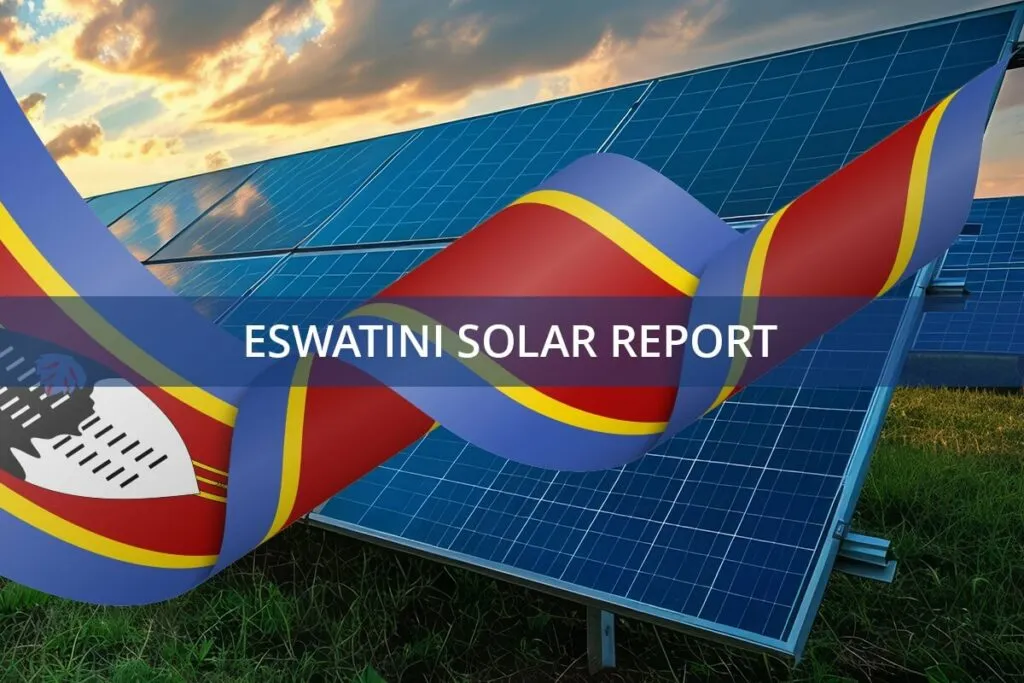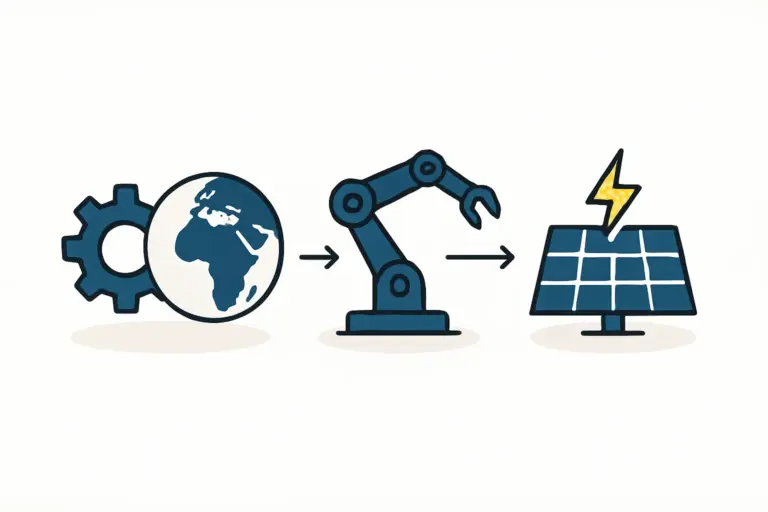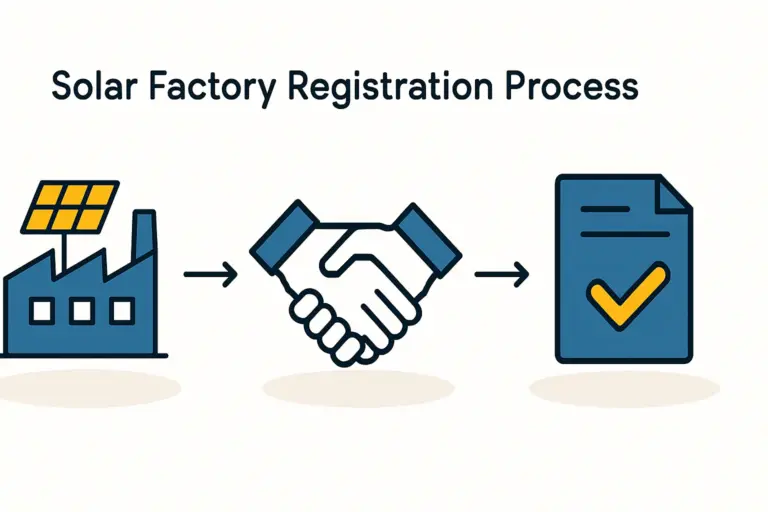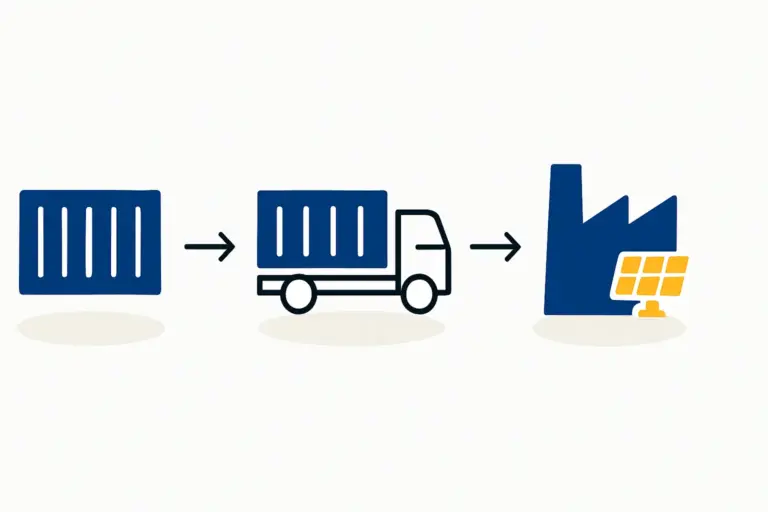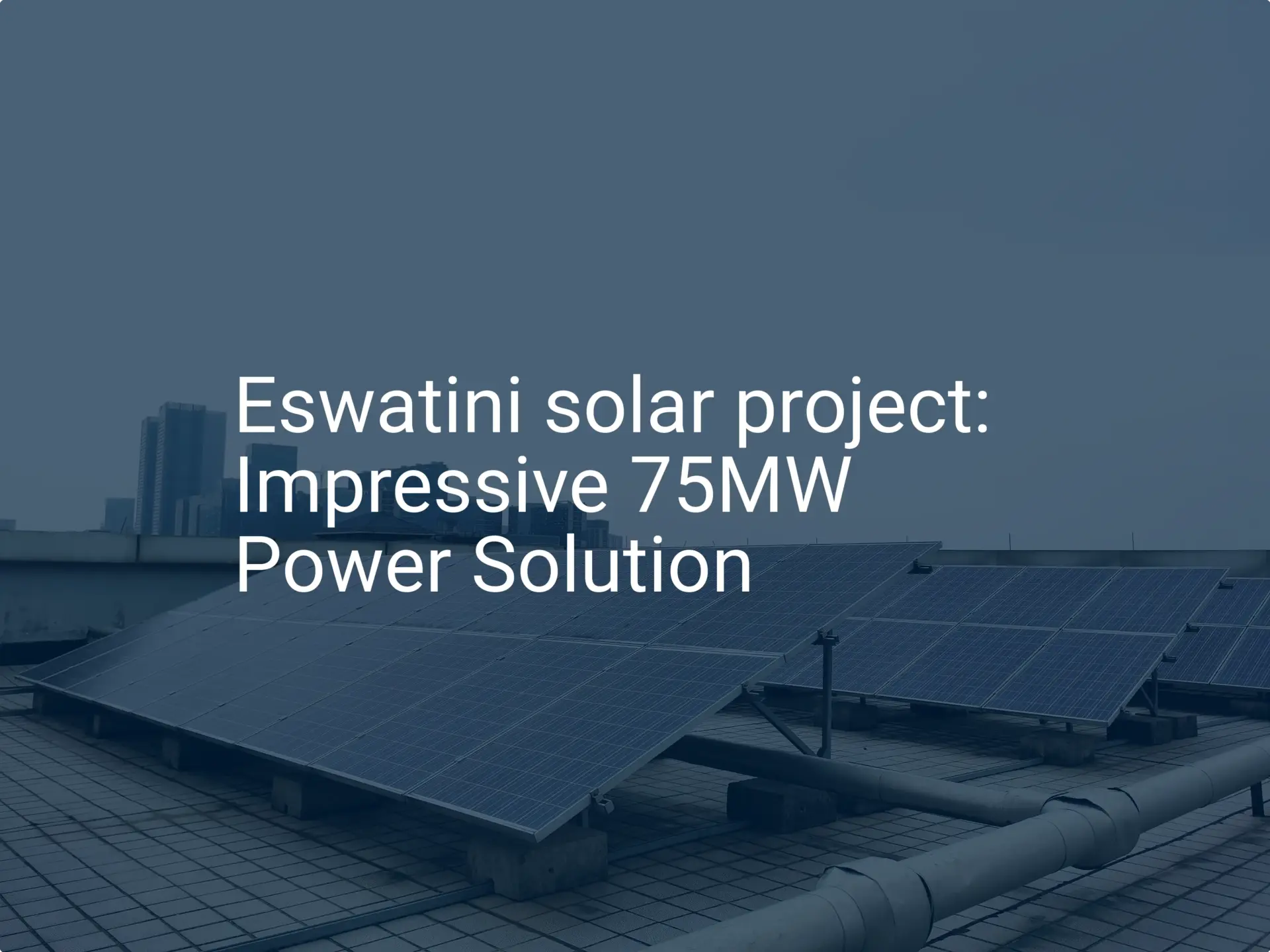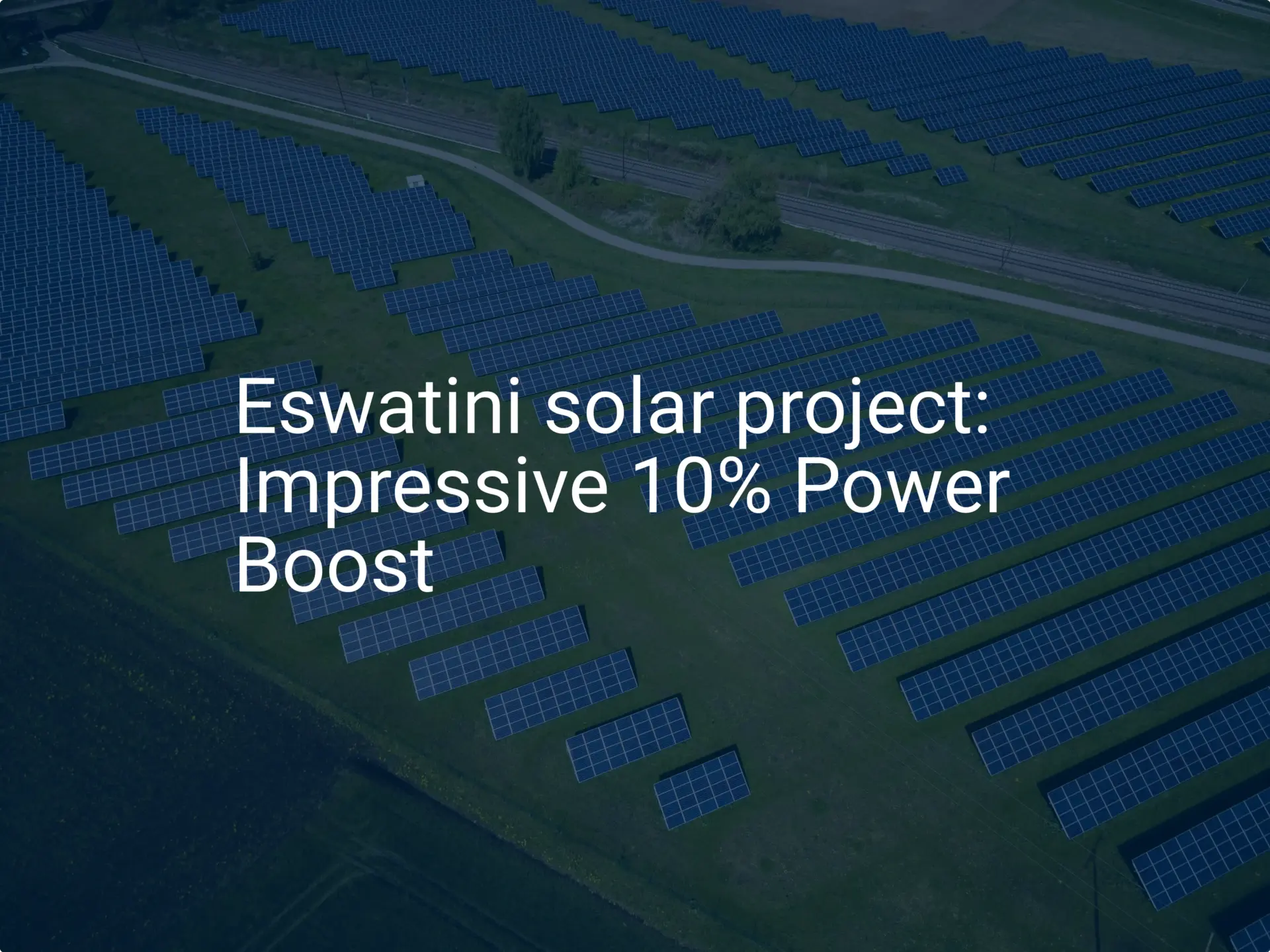An investor sees the potential in Eswatini: a stable economy, a strategic location within the Southern African Customs Union (SACU), and a growing demand for renewable energy. The Kingdom presents a compelling case for establishing a new solar module manufacturing facility.
Yet, before a single machine is ordered or a business plan finalized, a fundamental question must be answered: where to build the factory? The process of securing land in a foreign country can be opaque, governed by unfamiliar laws and local customs. This guide offers a clear, structured overview of the land acquisition framework in Eswatini for industrial investors. It explains the country’s unique land tenure system, outlines crucial industrial zoning regulations, and details the practical steps for securing a site for your solar manufacturing plant. Understanding these elements is the critical first step in transforming an investment concept into an operational reality.
Understanding Eswatini’s Dual Land Tenure System
The first realization for any potential investor in Eswatini is that not all land is governed by the same rules. The country operates a dual system, and choosing the right category of land is non-negotiable for a secure industrial investment.
Title Deed Land (TDL)
Title Deed Land is the form of land ownership most familiar to international business professionals. It represents privately owned property registered in a Deeds Registry, where the owner holds a title deed as legal proof of ownership. This land can be bought, sold, leased, and used as collateral for financing.
For a solar module manufacturing facility, TDL is the recommended option. It provides the legal security and certainty required for significant capital investment. Most of Eswatini’s industrial estates and urban areas are situated on Title Deed Land.
Swazi Nation Land (SNL)
Swazi Nation Land comprises the majority of the country’s landmass. It is held in trust by the King on behalf of the Swazi people, administered through local chiefs, and allocated to citizens primarily for residential and agricultural subsistence.
SNL is generally not suitable for large-scale industrial projects. The allocation process is complex and does not provide a transferable title deed, making it impossible to secure financing against the property. Attempting to navigate the SNL system for a commercial factory is a common misstep for newcomers and can lead to significant delays and legal complications.
Navigating Industrial Zoning and Designated Economic Zones
Once focused on Title Deed Land, the next step is identifying areas specifically zoned for industrial activity. Eswatini has strategically developed industrial estates and Special Economic Zones (SEZs) to attract foreign investment, offering established infrastructure and, in some cases, attractive incentives.
The Eswatini Investment Promotion Authority (EIPA) is the primary government agency assisting investors and is an invaluable first point of contact for identifying suitable, zoned industrial land.

Key Industrial Areas to Consider
Matsapha Industrial Estate: This is the economic heart of Eswatini and its largest, most established industrial hub. Located centrally, it offers the most developed infrastructure, including road and rail links, reliable utilities, and proximity to a large labor pool and ancillary services. Most major manufacturing operations in the country are located here.
Special Economic Zones (SEZs): Eswatini has designated SEZs to promote specific industries. The Royal Science and Technology Park (RSTP), for example, is geared toward technology-driven and high-value manufacturing. A solar module factory could potentially qualify for placement in such a zone, which may offer benefits like tax concessions, streamlined customs procedures, and high-quality infrastructure. Based on experience from J.v.G. turnkey projects in emerging markets, investigating SEZ benefits early can significantly improve a new venture’s financial projections.
The Step-by-Step Process for Land Acquisition and Permitting
While the legal framework may seem complex, the process for a foreign investor to acquire industrial land and obtain the necessary permits is well-defined. A methodical approach, guided by local expertise, ensures a smooth process.
Step 1: Engagement with the Eswatini Investment Promotion Authority (EIPA)
Your first official step should be to engage with EIPA. This agency acts as a facilitator, providing essential information on available industrial sites, applicable incentives, and the legal requirements for setting up a business. They can help connect you with landowners and relevant government departments.
Step 2: Site Identification and Due Diligence
After shortlisting potential sites, a thorough due diligence process is critical. This involves more than just negotiating a price; your site selection must be guided by a comprehensive evaluation of your factory building requirements. Key checks include:
- Zoning Confirmation: Verify with the local Municipal Council that the land is zoned for heavy industrial use.
- Utility Access: Confirm the availability and capacity of electricity, water, and internet connectivity directly with the utility providers.
- Logistical Assessment: Evaluate road access for heavy vehicles, proximity to major transport routes to South Africa or Mozambique, and distance from the labor pool.
Step 3: The Acquisition Process (for TDL)
The legal transfer of Title Deed Land follows standard international practice. It typically involves an offer to purchase, a formal sale agreement drafted by a legal professional, and the services of a conveyancer to manage the transfer and registration of the new title deed in the Deeds Registry.
Step 4: Securing Environmental and Construction Permits
Before construction can begin, two key approvals are mandatory:
- Environmental Compliance Certificate (ECC): An Environmental Impact Assessment (EIA) must be conducted by a certified consultant and submitted to the Eswatini Environment Authority (EEA). This assessment evaluates the potential environmental impact of the factory and outlines mitigation measures.
- Building Permit: Architectural plans must be submitted to the relevant Municipal Council for approval to ensure they comply with national building codes and safety standards. The technical specifications in your solar module manufacturing business plan will directly inform these drawings and permit applications.

Frequently Asked Questions (FAQ)
Can a foreign-owned company own land in Eswatini?
Yes, a foreign-registered company or a locally incorporated subsidiary can legally purchase and hold the title for Title Deed Land (TDL).
How long does the entire land acquisition and permitting process typically take?
While this can vary, a realistic timeline for a well-managed process, from site identification through to receiving a building permit, is between 6 and 12 months. Delays are often caused by incomplete documentation or insufficient due diligence.
Is it better to buy land or lease an existing facility?
Buying and developing a greenfield site allows for a purpose-built factory optimized for your specific production line. However, it requires higher initial capital and a longer setup time. Leasing an existing warehouse can reduce upfront costs and speed up market entry but may require compromises on layout and efficiency.
What are the typical costs associated with industrial land in Eswatini?
Costs per square meter vary significantly based on location, with prime land in the Matsapha Industrial Estate being the most expensive. EIPA can provide current market estimates to assist with financial planning.
Conclusion and Next Steps
Securing the right piece of land is the foundation for a successful solar manufacturing operation in Eswatini. The country offers a clear and secure path for industrial investors through its Title Deed Land system, particularly within its well-established industrial zones.
Investors who understand the distinction between TDL and SNL, engage with the Eswatini Investment Promotion Authority early, and conduct thorough due diligence can navigate the process with confidence. With a clear understanding of the land acquisition framework, the next step is to explore the details of a turnkey solar factory setup to translate your strategic vision into a fully operational and profitable enterprise.


